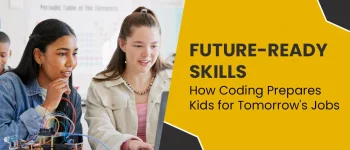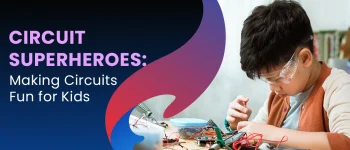
Middle school students can enjoy math by engaging in hands-on projects that make the subject more relatable. Here are five math projects specially designed for this age group. First, they can design and build a catapult to learn about angles and measurements. Second, they can create a budget for planning a party, using algebra and financial concepts. Third, they can investigate the game of Rock, Paper, Scissors to analyze probability and statistics. Fourth, they can explore geometry by constructing 3D models using graph paper and scissors. Lastly, they can use data to create a survey and make predictions about the school’s favorite ice cream flavor. These projects allow students to apply their math skills in practical and engaging ways..
Mathematics is often considered the most intimidating subject for students. Many students develop a dislike for math because they struggle to find the logic behind the problems. However, math can become enjoyable if it is approached through engaging games and interesting projects.
Research suggests that incorporating math projects into education can have significant real-life implications. A strong foundation in mathematics can lead to more rational and logical decision-making skills. To maximize these benefits, it is crucial to introduce math projects at a young age, preferably during middle school.
In this article, we have listed several math projects that are not only interesting but also help students learn math in a fun and engaging manner. For instance, one project involves creating Venn diagrams using cut-out shapes and statistics. Another project focuses on the magic of trigonometry, where students cut out triangles and determine angles using trigonometric concepts.
There is also a project involving the construction of parachutes using STEM principles (Science, Technology, Engineering, and Mathematics). This project not only enhances mathematical skills but also promotes critical thinking, estimation, and problem-solving abilities.
Another project idea is to explore the concepts of probability and permutation by examining dice and card games. By calculating the probability of specific outcomes, students can develop a deeper understanding of these mathematical concepts.
In addition to these projects, we have mentioned other math-related activities such as a paper airplane competition, budget calculations for a dream vacation, math riddles and puzzles, and applying mathematics in a grocery shop or through an outdoor math hopscotch game.
When designing math projects, it is important to consider certain parameters. The project should require significant mathematical skills but not be too difficult to comprehend. It should also be enjoyable for students, and teachers should reward the winning team to foster motivation. Furthermore, these projects should not only focus on mathematical skills but also incorporate essential life skills such as patience, teamwork, and problem-solving.
By incorporating these math projects into the curriculum, students can develop a stronger understanding of mathematical concepts while enjoying the learning process. These projects not only engage students but also provide a break from the routine classroom environment. At Moonpreneur, we understand the changing needs of the modern world and offer an Advanced Math course designed to help students develop math skills through hands-on lessons and real-life applications. Register for our free 60-minute Advanced Math Workshop today to give your child a head start in math education.
[Image: Robotics Class Banner]
Source: moonpreneur.com
Hashtags: #Math #Projects #Middle #School #Students







 24hMinecraft is a Minecraft community created by fans, where users can share and download their favorite shader packs, mods, maps, texture packs, or expand their knowledge with our guides.
24hMinecraft is a Minecraft community created by fans, where users can share and download their favorite shader packs, mods, maps, texture packs, or expand their knowledge with our guides.
Leave a Reply